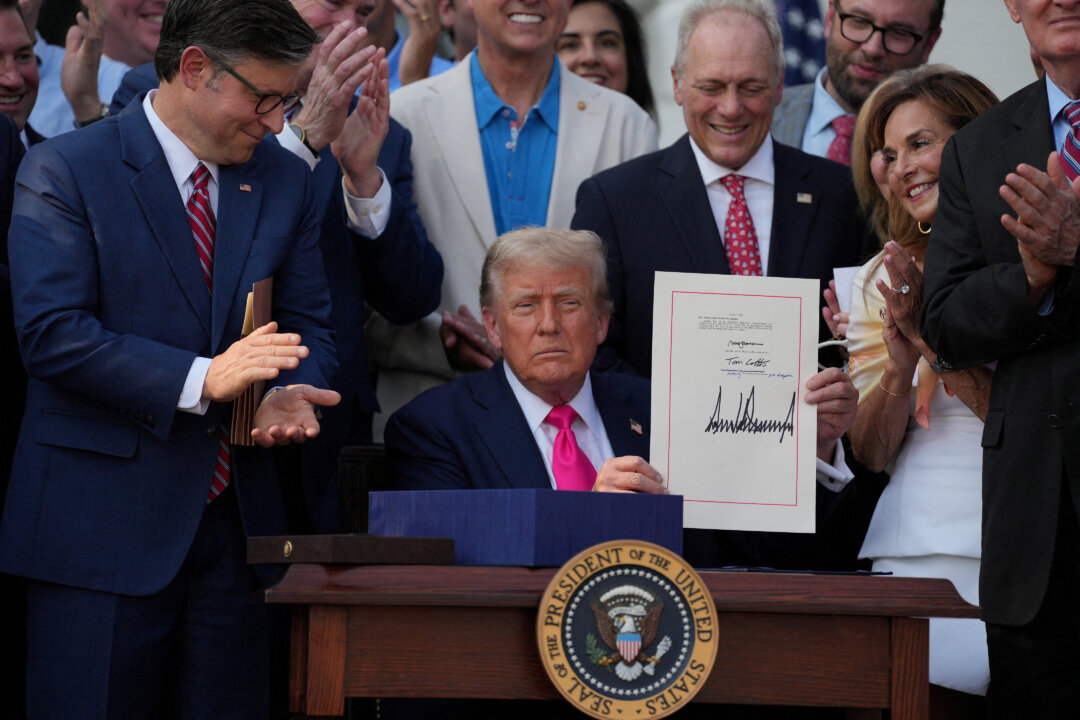President Trump's 'Big Beautiful Bill' Projected to Add Trillions to U.S. Debt
President Trump's 'One Big Beautiful Bill Act' is projected to add $3.4 trillion to the U.S. deficit, potentially increasing uninsured individuals by 10 million by 2034.
Subscribe to unlock this story
We really don't like cutting you off, but you've reached your monthly limit. At just $5/month, subscriptions are how we keep this project going. Start your free 7-day trial today!
Get StartedHave an account? Sign in
Overview
- President Trump's proposed 'One Big Beautiful Bill Act' is projected to increase the U.S. deficit by $3.4 trillion over the next decade, according to CBO and news sources.
- The bill extends 2017 tax cuts, makes Republican-introduced tax cuts permanent, and includes new deductions for tips and overtime pay, contributing to the debt.
- The projected $3.4 trillion debt increase stems from $4.5 trillion in decreased revenue, including corporate tax rate reductions, outweighing $1.1 trillion in spending cuts.
- The legislation also allocates significant new spending for military and immigration enforcement, while potentially increasing the number of uninsured Americans by 10 million by 2034.
- A CBS News/YouGov poll indicates only 39% of U.S. adults approve of the 'big, beautiful bill,' with 61% disapproving, despite Republican celebration.
Report issue

Read both sides in 5 minutes each day
Analysis
center-leaning sources frame the Trump administration's recent actions as a deliberate strategy to divert attention from the Jeffrey Epstein fallout. They characterize these actions as "MAGA's other greatest hits" and releases of "old grievances" or "conspiracies," implying a calculated effort to appease the base and shift the narrative away from unfavorable topics through selective emphasis and loaded language.
Articles (4)
Center (2)
FAQ
The One Big Beautiful Bill includes the largest tax cuts in history for middle- and working-class Americans, extends 2017 tax cuts, makes some Republican tax cuts permanent, introduces new deductions for tips and overtime pay, provides permanent increases to the Child Tax Credit, invests in border security and immigration enforcement, expands energy production, and includes defense funding and spending cuts.
The bill is projected to add approximately $3.4 trillion to the U.S. deficit over the next decade, primarily due to $4.5 trillion in decreased revenue from tax cuts, which outweigh $1.1 trillion in spending cuts.
The legislation may increase the number of uninsured individuals in the U.S. by 10 million by 2034.
A CBS News/YouGov poll shows that 39% of U.S. adults approve of the bill, while 61% disapprove, despite celebrations from Republican supporters.
The bill makes significant changes to energy tax credits by accelerating phase-outs, terminating certain credits, and adding foreign-entity restrictions. It also expands provisions for small business stock, business income deductions, and employee retention credits.
History
- This story does not have any previous versions.



